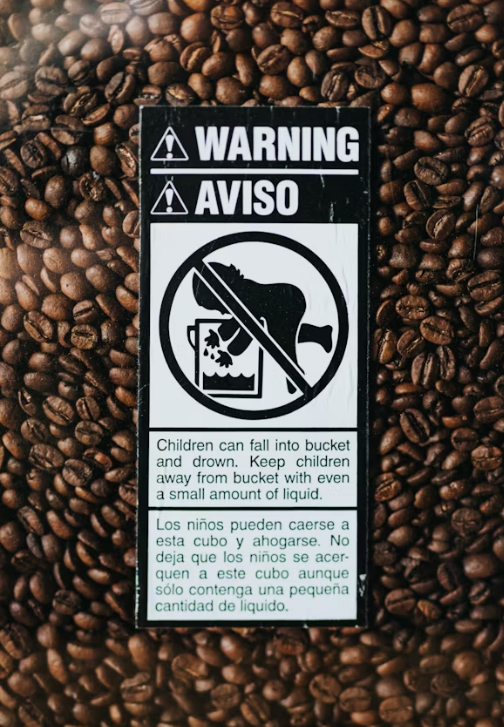Why Caffeine Can Be Harmful to Your Skin: A Detailed Perspective
Caffeine is a widely loved stimulant found in coffee, tea, energy drinks, and certain medications. While it is celebrated for its ability to boost energy, improve focus, and even enhance mood, its impact on skin health is less talked about. Excessive caffeine consumption can have detrimental effects on your skin, which are often overlooked in favor of its immediate benefits. Let’s dive into how caffeine might harm your skin and why moderation is key.
1. Dehydration and Its Impact on Skin
Caffeine is a diuretic, meaning it increases the body's production of urine, leading to potential dehydration. Dehydrated skin lacks moisture, which can make it appear dull, flaky, and less plump. Chronic dehydration due to high caffeine intake can compromise the skin’s natural barrier, leaving it more susceptible to environmental damage and premature aging.
- How this affects your skin:
- Fine lines and wrinkles appear more pronounced on dehydrated skin.
- A lack of hydration reduces elasticity, making the skin less resilient over time.
- Dullness and uneven texture can develop as the skin struggles to retain moisture.
2. Stress Hormone Activation
Caffeine stimulates the release of cortisol, the body’s stress hormone. Elevated cortisol levels can wreak havoc on the skin by increasing oil production, which may lead to acne, clogged pores, and inflammation.
- How this affects your skin:
- Higher oil production can result in breakouts, particularly in individuals with oily or acne-prone skin.
- Chronic inflammation triggered by cortisol can accelerate collagen breakdown, leading to sagging and fine lines.
3. Interference with Sleep
Caffeine is a well-known disruptor of sleep patterns. Poor sleep or insomnia caused by late-day caffeine consumption affects your skin's ability to repair and regenerate overnight. During sleep, your body goes through critical repair processes, including collagen production and skin cell turnover.
- How this affects your skin:
- Lack of sleep can cause under-eye bags, dark circles, and a tired appearance.
- Impaired regeneration leads to a dull complexion and slower healing of blemishes or irritations.
- Over time, disrupted sleep accelerates signs of aging, such as wrinkles and loss of firmness.
4. Oxidative Stress and Inflammation
Although caffeine has antioxidant properties, excessive consumption can tip the balance toward oxidative stress, which occurs when free radicals outweigh the body’s antioxidant defenses. Oxidative stress damages skin cells, contributes to inflammation, and accelerates aging.
- How this affects your skin:
- Inflammatory skin conditions, such as rosacea and eczema, can flare up with excessive caffeine intake.
- Collagen and elastin fibers are broken down faster, causing skin to lose its youthful structure.
- Long-term damage may manifest as hyperpigmentation, uneven tone, and increased sensitivity.
5. Disruption of Nutrient Absorption
Caffeine can interfere with the absorption of essential vitamins and minerals, particularly those vital for skin health, such as vitamins A, B, C, D, and E, as well as minerals like zinc and magnesium. Without these nutrients, your skin struggles to maintain its health and radiance.
- How this affects your skin:
- Vitamin C deficiency can reduce collagen production, leading to sagging and dull skin.
- Zinc is crucial for healing acne and maintaining skin's immune function. Caffeine can hinder its absorption, worsening skin issues.
- Magnesium helps manage stress, and a deficiency can exacerbate skin inflammation.
6. Aggravation of Pre-Existing Skin Conditions
For individuals with sensitive skin or pre-existing skin conditions like acne, rosacea, or eczema, caffeine can exacerbate symptoms. Its impact on stress hormones, dehydration, and inflammation creates a perfect storm for flare-ups.
- How this affects your skin:
- Acne-prone skin may see more frequent or severe breakouts.
- Rosacea symptoms, like redness and visible blood vessels, may intensify.
- Dry, flaky conditions such as eczema can worsen due to dehydration.
7. Sugar and Dairy Additives
Caffeine isn’t consumed in isolation. Coffee and tea often come with sugar, syrups, or dairy, which can contribute to skin issues. Excess sugar leads to glycation, a process that damages collagen and elastin fibers, while dairy can exacerbate acne in some individuals.
- How this affects your skin:
- Glycation accelerates aging by making skin less supple and more prone to wrinkles.
- Dairy may trigger hormonal imbalances that lead to clogged pores and acne.
How to Mitigate the Effects of Caffeine on Skin
Moderate Your Intake: Stick to a maximum of 200–400 mg of caffeine per day (roughly 1–2 cups of coffee) and avoid consuming it late in the day to protect your sleep.
Stay Hydrated: Pair your caffeine intake with plenty of water to counteract its dehydrating effects.
Choose Alternatives: Herbal teas, like chamomile or rooibos, are caffeine-free and rich in skin-friendly antioxidants.
Prioritize Nutrition: Consume a diet rich in skin-boosting nutrients like vitamins C and E, zinc, and omega-3 fatty acids.
Be Mindful of Additives: Opt for black coffee or unsweetened tea to avoid added sugars and dairy that can harm your skin.
- Skincare Routine: Use hydrating serums and moisturizers with hyaluronic acid to combat dehydration. Antioxidant-rich products with ingredients like vitamin C can help neutralize free radicals.
The Bottom Line
Caffeine, when consumed in moderation, can be a part of a healthy lifestyle. However, overindulgence can take a toll on your skin, leading to dehydration, inflammation, and premature aging. Understanding its effects and making mindful choices about your caffeine habits can go a long way in preserving your skin’s health and radiance. Remember, glowing skin comes not just from the products you apply, but also from the habits you cultivate!



